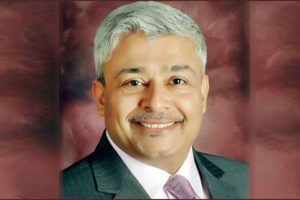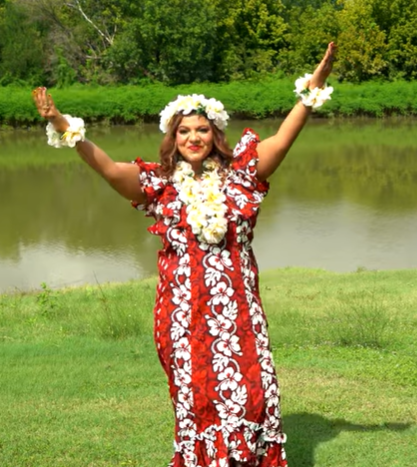As tensions have swelled on Australian university campuses over the democracy movement in Hong Kong, the battle lines seem to have been neatly drawn: Chinese students on the side of China, and Chinese-Australian students on the side of Hong Kong.
But inside the halls, the reality is more complicated. Views are often less absolute, and loyalties not so predictably traced. Some students from mainland China shout their allegiance to their homeland; others privately voice sympathy for the Hong Kong protesters. Some conservative Chinese-Australians oppose greater independence for Hong Kong; others fear being lumped in with mainlanders they disagree with. Most feel a new glare of public scrutiny.
Australia has a particularly complicated economic and geopolitical relationship with China, a dynamic that shapes its views toward Hong Kong. As these issues now come to the fore on Australian campuses where international students are a large presence and a financial lifeline, students of Chinese descent say they are feeling a deepening sense of anxiety, leaving them unsure whom to believe and whom to trust.
Although clashes like the violent confrontation between Chinese nationalists and pro-Hong Kong protesters in July at the University of Queensland have received the most attention, what quietly pervades daily life, Chinese students say, are feelings of vulnerability to mistreatment and fear about voicing their true opinions.
“A lot of Chinese students here, they want to speak up,” said a law student at the University of Sydney and a supporter of the Hong Kong protests who requested anonymity because his family had received a warning from Chinese security officials. “But they don’t feel they’re safe to do that.” He added, “We don’t know who we can trust.”
Australia has been grappling for years with worries about its deepening financial reliance on China, and about meddling by Beijing in its government and other institutions. Both of these concerns have touched the nation’s universities, and last month the government announced the creation of a task force that will examine foreign interference on campuses.
There are about 150,000 students from China at Australia’s universities, as well as tens of thousands of Chinese-Australians. It’s a sizable block of tuition-paying students that, when combined with large donations from Chinese businesses and organisations, has redrawn campus life — from new buildings named for Chinese donors to conflicts over language, student politics and academic freedom.In a country that barred Asian migration for decades, and where the power structure is still predominantly white, the flare-ups over Hong Kong have only added to the suspicion cast on Chinese students by some Australians.
“Most of them have adopted this view that Chinese international students are agents of influence,” said Alan Zheng, an Australian student of Chinese descent who believes that the narrative is going in directions that risk alienating Chinese students. “It’s bordering on racism.”
Jacky He, an engineering student at the University of Sydney who immigrated from China as a child and is the current president of the student representative council, said that singling out one ethnicity on campus was unfair. He pointed to the benefits for Chinese students of studying in Australia: Watching democracy in action on campus, he said, is like “opening a door.”
But when asked about the tensions over Hong Kong, he paused. “It will be very uneasy for people to talk about it,” he said. “No one really wants to get into a debate about whether your idea is right or whether your idea is wrong.”
The backdrop to He’s comments was a meeting of the student council where shouting broke out over a proposed symbolic motion supporting peaceful protests in Hong Kong and condemning police violence.
Clement Sun, a Chinese student, moved to open it up for debate. But before that could begin, another student, Yuxuan Yang, stood up and shouted an expletive at him in Mandarin. “If you do this, there will be consequences,” he said. “You are Chinese; you don’t even love your own country.”
As other representatives looked on in confusion, Sun responded: “I am Chinese. I do love my country.” Another Chinese student left the lecture room, briefly suspending the meeting.
Yang later said that he had made the comment to express his thinking on the matter, and that everyone was entitled to do so. “Hong Kong and China should not separate. That is my view,” Yang said.
Crystal Xu, the student who left, said that “it’s not that I walked out of the room because I didn’t want to hear the discussion.” She said she was worried that it would get physical. “I don’t want those kinds of similar things happening on our campus,” she said.
In interviews with more than two dozen Chinese students, several said that what they most wanted was a calm, reasoned debate on campus about the issues raised by the Hong Kong protests — a contrast with fiery portrayals in the news media.
But they acknowledged the difficulty of that, given the passions aroused by subjects like democracy, nationalism and sovereignty. They said that fear of retribution prevented them from voicing their opinions, and that universities needed to do more to protect them.
Many Chinese students sympathetic to the Hong Kong protesters said they were worried that they would face abuse from their peers, and that their opinions would be reported to the Chinese government. Some who support the Chinese government said they were afraid of being exposed to xenophobia in Australia. Others, confused by contradictory accounts in the Western and the Chinese news media, are discussing the subject among only the closest of peers.
“The simple narrative that Chinese students love China and Chinese-Australians love Hong Kong is simply wrong. There’s a much more complex mix of attitudes,” said Salvatore Babones, an associate professor and sociologist at the University of Sydney who works closely with Chinese students on campus.
The University of Sydney has long been a feeder for the nation’s top political posts; its alumni include seven prime ministers. As the Chinese student population has grown, many of the newest generation of leaders are Chinese students hoping to represent a contingent of overseas students that has traditionally been missing from student politics.
For Chinese students with more complicated opinions on their country, the discussion about Hong Kong comes with particular unease. One Chinese student pondering the potential of a democratic China stopped midsentence when another Chinese student sat within earshot. A student official said he had seen posts on WeChat threatening to report students dissenting from the pro-China stance.
“We don’t really differentiate the country, the culture, the people, the government. If you criticise one, you criticise all four,” said the mainland Chinese student whose family had been visited by Chinese security officials.
“Many people in China can vaguely sense the absurdity of their life,” the student said. “But it takes guts to face the reality of dictatorship. That is hard and frightening.”
Pui Cheung, an organiser of pro-Hong Kong protests at the University of Sydney who moved to Australia from Hong Kong as a child, said of Chinese students: “We should be trying to give them access to the truth. Let them make up their own minds.”
Universities, she added, should be protecting the ability of people to have “difficult conversations.”
In an open letter to students, Michael Spence, the vice chancellor at the University of Sydney, said that universities must be places where students can have “hard but respectful conversations — where misunderstandings are corrected, and assumptions challenged.”
But Max Choi, 23, a student from Hong Kong at Monash University who has helped organise protests in Melbourne, said that while universities “will keep us safe,” they will not say anything about what’s happening in Hong Kong “because they have a lot of Chinese customers.”
Carrie Wen, an editor at a student newspaper at the University of Sydney, said that several fellow Chinese students had asked her to amend a report on Chinese students’ removal of a board of sticky notes expressing opinions about the Hong Kong protests, known as a Lennon wall. The students said the article should include more of their views.
But many of her friends who attend pro-Beijing protests, she said, are not thinking a lot about politics. “They’re just thinking about self-identity,” she said. “They don’t mean to harm.”
© 2019 New York Times News Service






















